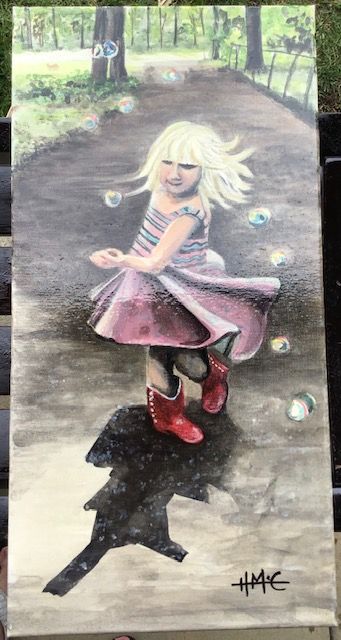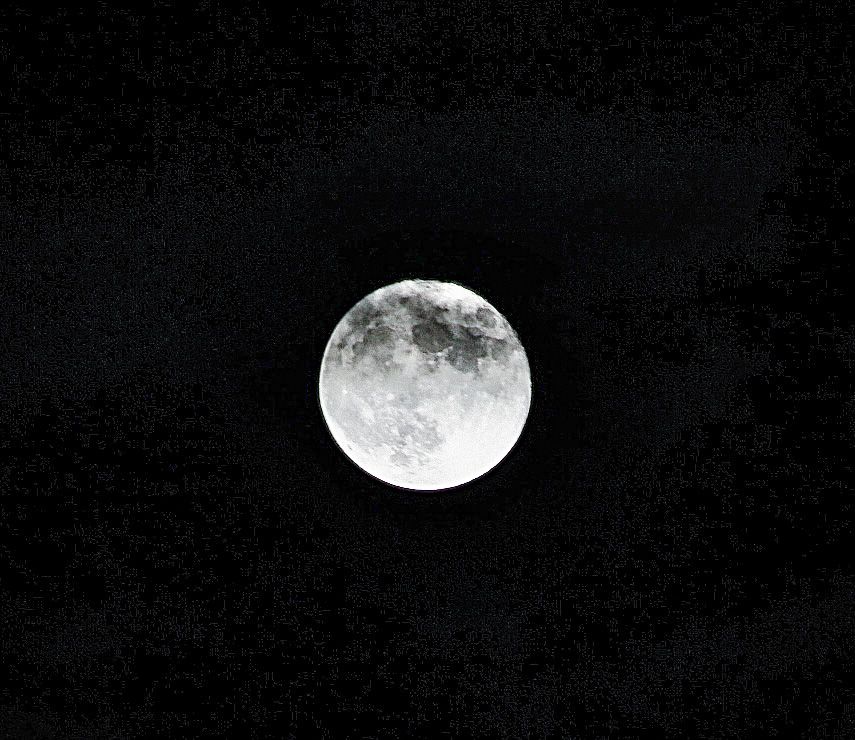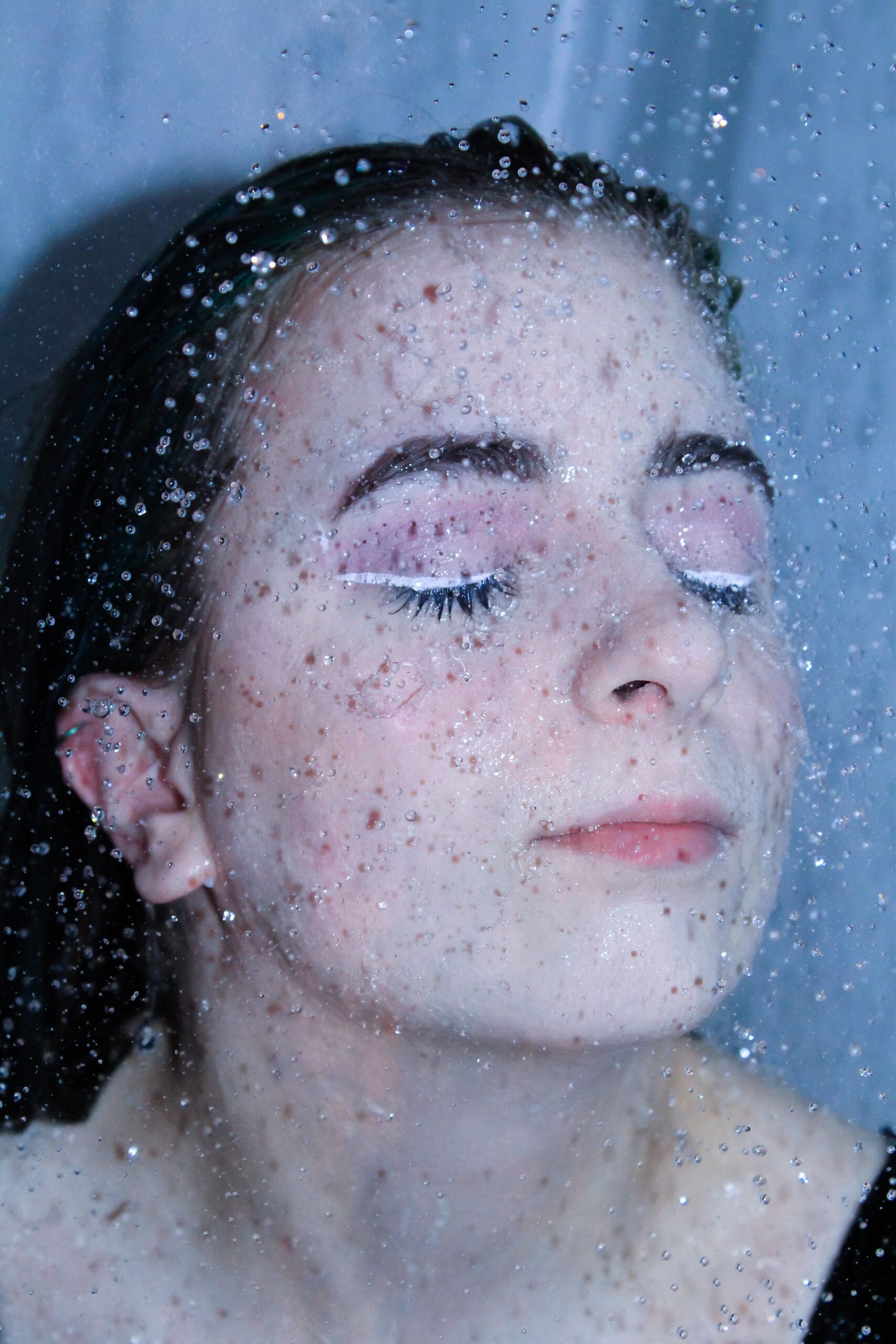Anton Chekhov once said that if you bring a gun onstage at the start of a play, it must go off before the curtain closes. Audiences will assign significance to the smallest of details; they will assume that if a prop or a character or an idea is introduced, it will end up playing a part in the climactic tying-up of the narrative, regardless of what the author intended.
A gun, therefore, that is loaded in Act I, must be fired before the final line.
That night, when James entered the house, he brought a gun with him. It didn’t have to be a physical weapon for them to sense the threat. He sat at the dinner table with the barrel on his knee, finger crooked at the metaphorical trigger, while the family forced down mashed potatoes and green beans and confrontation. No one brought up the subject that hung in the air, thick as fog, or the fact that an armed man was in their midst, ready to fire at the drop of a hat, or the drop of a word. He had showed up out of the blue that night, right in the middle of their meal, for a reason none of them could divine. No one knew when he would make his move—no one moved to stop him. Politeness snared their limbs and confined them to airy, over-casual conversation as they waited for the shot Chekhov had said was inevitable.
Each of them handled it a different way. The father, that stoic bulwark of the family, entrusted with holding things together even when they are falling apart, eyed James from the opposite end of the table. He never quite made eye contact with his oldest son, only watched him warily, like an officer watching the brush where he suspects a grenade has been rigged. The mother kept standing and refilling everyone’s glasses or bringing out fresh baskets of bread. When the youngest spilled a few drops of juice, she leapt up, wadded napkin in hand, and blotted up the particles before they even had a chance to stain the tablecloth.
The youngest, a little girl with ribbons in her hair, pressed the back of her spoon into her mashed potatoes, oblivious.
The other two daughters, seated side by side, understood more. Susannah nervously tossed jokes into the center of table, trying harder even as they fell flatter. She smiled, her dimples popping on each side of her face, but the look in her eyes was the scared look of a rabbit caught out of its hole. Occasionally, she would glance at her mother. But she would be busy complimenting the youngest on her braids or handing their father more bread without meeting his eyes.
The middle sister, Teri, sat with her hands folded. She barely ate. Her eyes—dark, deep, and painfully big—shimmered with saltwater. The looks she cast her family were helpless, hopeless, lost. Of all the family, she was the only one who sometimes looked at James.
He sat at the foot of the table. The young man ate steadily, like a machine. One of his hands was always beneath the table, resting in his lap. He had draped a napkin over his knees, just like his mother had taught him when he was a little boy. He hadn’t been so polite in years.
On James’s right stood an empty chair. Whenever one of the family averted their eyes from him, their gaze inevitably fell on that vacant seat.
“Any word from your boss?” the mother asked James. Instead of looking at him, she stared at a green bean that had fallen off someone’s plate, onto the tablecloth; it lay there like a little green log, floating alone in a sea of white cloth.
James cleared his throat. “No,” he said. The table waited with bated breath while he raised a glass to his lips, took a sip of water, and set it back down.
“I don’t see why they wouldn’t hire you back,” the father said with a little cough. “I mean, after the incident was…cleared up.”
James gave a noncommittal shrug. To them, it seemed he slid a hand up the barrel of the gun, reminding them he had ammunition in his corner. To tread carefully.
“It was a misunderstanding,” Susannah chimed in breathlessly. “Your friends were the ones selling, not you…I’m convinced they’ll change their minds, just as soon as they deal with all the paperwork and official bother… I know it.”
“She’s right, son,” the mother told James. “Just let things cool down.”
“I didn’t intend to do otherwise,” James replied in an impassive tone. He shrugged again. “Not that it really matters.”
An awkward silence descended over the table, broken by the youngest giving a chortle and banging her spoon against her plate.
“Now now, don’t do that love,” the mother shushed. She reached out and took the spoon away.
James watched the intrigue, his face closed as a shuttered window. That one hand still rested in his lap.
The mother set the offending spoon aside, and as usual, her eyes flicked for one second to that empty chair. She couldn’t help herself. If she had thought about it, probably she would have made an effort to avoid looking there. Maybe seeing that effort would have comforted James and made him think that perhaps she had forgiven him. But unconscious gestures reveal the most.
“It’s the anniversary tonight,” James said.
The whole table froze. In one motion, he had both cocked the gun and pulled the trigger, with an abruptness even they had not expected. For the first time every eye turned to James. Only the little girl kept playing with her fork.
“I know,” James told them. “I remembered.”
He turned to the mother, a pained crease between his brows.
“You have a candle, don’t you?” he whispered. “You always light it at 6 o’clock tonight. Where is it? Bring it out.”
“James…” Her eyes were darting now, quick as the candle flames. “I didn’t want to—”
“Bring it out.”
Wordlessly, the mother got up and took a candle from the mantlepiece. It was a thick, off-white cylinder of wax, with a hole in the center where the wick had melted down. Each year it got fractionally deeper as they lit it, for ten minutes, and then blew it out. The ten minutes was specific—just like the date, just like the time of six o’clock. It all had a significance.
The mother set the candle, with its metal filigree cage, in the center of the table.
The others, knowing the ritual, sat up a little straighter. James remained motionless in his seat; he stared at the wick as his mother put a match to it. The tip of waxy string spat and then burned, exuding a little bubble of warm light.
“Start counting,” James said. He stared into the candle flame, like a man in a trance. The tongues of flame flickered just slightly in the pupils of his eyes.
“1, 2, 3, 4, 5,” the youngest cried at the top of her lungs. Susannah hushed her in a panic, letting loose a nervous giggle. Teri just stared at her youngest sister like a theatregoer judging an ill-placed moment of comic relief—jarring, off-key. The mother and father, for once, barely noticed their youngest’s antics. Their eyes were riveted on James, like James’s eyes were riveted on the candle.
“I counted too,” James whispered. His voice was so low, he might have been talking to himself. “I counted every second it took the ambulance to arrive, every minute they worked on him… until nothing could be done.”
Passed away at six hours, ten minutes, on January the 16th. Blunt force trauma to the head, crushed lung, multiple abdominal injuries. Passenger side of car completely crushed.
“The paramedics said you did exactly what you were supposed to,” the mother told him. “Calling 911, staying with him—” Her voice was forcibly positive, chipper almost. Everyone tried to ignore how obvious it was how hard she was trying. On the wall, the dining room clock ticked obtrusively, reminding the family that it was still keeping time, still counting off the seconds, the minutes…
“Not that night.” James shook his head, back and forth. “One night, I mess up. One night, and nothing’s ever the same afterwards. Nothing.”
Driver unharmed. No witnesses to the collision.
Tick, tick, tick. The little girl, subjected to silence, hummed her ABCs in a sing-song rhythm.
The mother opened her mouth to contradict James. But no rebuttal came forth. She looked over at the father, her husband. But his jaw was tight, his eyes at once cold and teary. He held the place of defense, but he could not muster a response.
“We don’t blame you,” Susannah said as she fussed with her napkin. “You know that, don’t you? Of course, nothing’s the same, how could it be? But you’re still… our brother… and we still… love you just the same…”
Her normally fluid prattle trailed off, like the trickle of water from a drying spring. James was staring at her, and in the face of his pained, accusing eyes, she couldn’t continue to invent excuses. No amount of words could make up for the dinners he had not been invited to, the memories he had not shared, the days their family had spent apart.
Most of it was James’s own fault, the parents had said. Drinking had been the start of it all, and when he started drinking every night, and carousing with his friends, and losing job after job, it just wasn’t a good influence for Susannah, and Teri, and the little one.
But other times it had been too hard for the mother to see James without crying. Or for the father to take him fishing alone when his two sons had been inseparable. The girls didn’t know how to act; it wasn’t that they were angry, only broken, and confused—and deep down a little scared. If James could be so careless with their brother’s life, could they really ever trust him with theirs? Even a little bit? Was it worth the risk?
As the years crept on, James had found friends with substances that made him forget, both the good and the bad. He had lost more jobs, and more girlfriends. He had briefly moved across country, before coming back and living in a rundown apartment with leaks in the plumbing. The family had watched it all from the safety of their home. Eventually it had gotten to the point where the parents had warned the girls to be careful if they saw James on the street. Careful, of their own brother. Their relationships had grown ever more fragile, until they interacted with James like one might with a neighbor’s dog—wary, polite, watchful. Why he had shown up tonight, unexpected and unannounced, was a disturbing mystery they were still trying to unravel.
James saw all that as he looked into Susannah’s eyes, and then Teri’s, and finally his parents. A sad smile played over his face, like the play of the candlelight on the tablecloth.
“You should blame me,” he said quietly.
The second hand on the clock completed its tenth circuit. With one finger, James reached and snuffed the candle out. To him, it was just like he had snuffed out that life, almost five years ago now. It seemed fitting.
He stood up from the table with the solemn regality of a minister at a funeral.
“But we haven’t had dessert yet,” the mother stammered.
“Dessert?” James regarded her with a sad, disappointed look. “Tonight?”
At that, the mother could only look down at the smudges on her plate.
“Yay, dessert!” the youngest shrieked and banged her fork.
Hissing, Susannah darted a hand across the table and snatched her last remaining utensil away. Teri didn’t budge. She was staring at James, and the tears that had been lingering in her eyes now slipped free down her cheeks.
James still held his napkin, draped over his right hand like a shroud. It seemed such an insignificant thing, at the time, why he still held his napkin after getting up from the table. But Teri would remember that when she remembered nothing else. If only she had realized the importance of the gesture sooner. Before nothing could be done.
James walked around the table, as if heading for the door, and then stopped a few feet behind the little girl’s chair. He turned back.
His audience, tense, uncertain, watched him on the edge of their seats. Though they didn’t want to admit it, they wanted him to leave, hurry out that door, disappear into the night… carry with him the threat he had brought into the room.
“I lost my place here a long time ago,” James whispered. “The moment I took him in that car with me. You can’t ever forgive me. I wouldn’t either.”
He looked around the table one more time. He spared a moment to watch the smoke curling from the burnt-out candle. He reached out one hand, the hand without the napkin, and touched the youngest on the shoulder, like one might touch the hand of a priest.
“I’m sorry,” he said, his voice now barely a breath. “But I couldn’t do this alone.”
He stepped back, and the napkin crumpled to the ground. The unshrouded hand came up.
Maybe they had sensed it as soon as James walked into the house; maybe that was why, in their minds, they compared the tension to a loaded gun without even knowing why. Assigning, as humans always do, some metaphysical symbolism to details that seem insignificant: like the way he had rested his hand in his lap, or how he had spread his napkin over his knees.
But they had made the connections too late. The signs had been there all along, but when everything came together, it still took them by surprise.
The gun that James had brought onstage loosed its fated shot at last.






